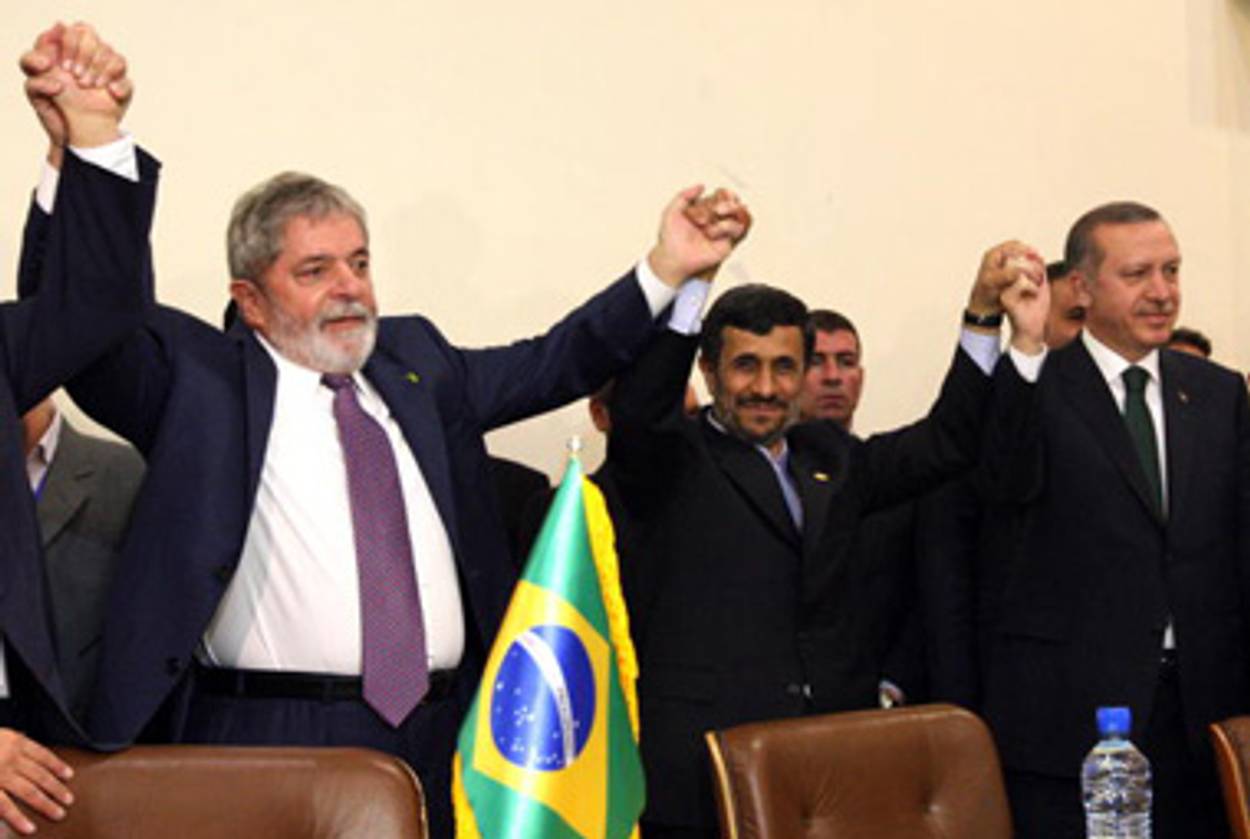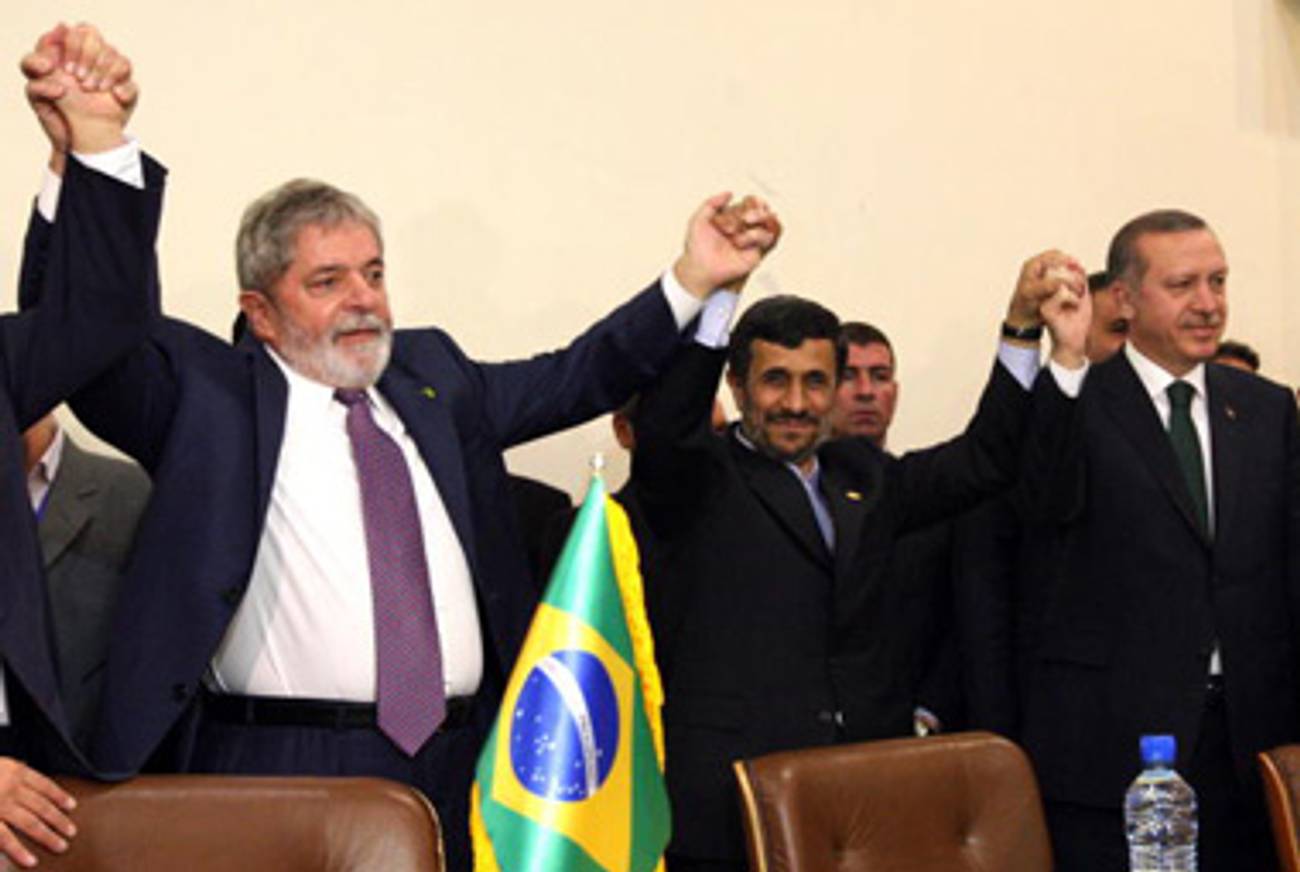Reining In Iran
A tale of two competing efforts




Here’s the basic summary of what has been happening, with a hat-tip to Washington Post columnist David Ignatius: At the beginning of the week, Turkey and Brazil cut a deal with Iran involving a swap of unenriched uranium in exchange for 20 percent enriched uranium. The deal, in fact, is quite similar to one offered Iran in October. That deal was offered by the major powers (including the United States) and would have involved a swap with Russia; the major powers are not behind this deal and it involves a swap with Turkey. Brazil and Turkey get to solidify their position as leaders of a new bloc of rising nations; Iran gets to be seen as conciliatory and thereby persuades Russia and especially China that further U.N. Security Council sanctions are not necessary.
But! That only sort of worked! Because on the very same day—as if to say, “No, we’re still in charge”—the United States introduced a new draft sanctions resolution that has the support of all five permanent members, including general holdout China. While lacking much in the way of actual bite—there are no enforcement mechanisms, for example—the unity this expressed demonstrated that Iran is not going to be let off so easily. (As for Turkey and Brazil, the United States is appreciative of their efforts … and little more.) “What’s important about the unified U.N. stand,” Ignatius writes,
is that it will force Iran back to the bargaining table if it wants to avoid growing diplomatic isolation from the world’s superpowers. Yes, Tehran can claim that it has support from two of the world’s rising nations, Turkey and Brazil, which it will tout as allies against the great satans of the Security Council. But realistically, the Iranians know that having lost Russia and China on sanctions, they are on shaky ground.
The Obama administration has been calculating that unity among the “P-5” (diplo-speak for the five permanent Security Council members) is more important than the details of the sanctions resolution, and this week’s events showed that this strategy was right.
Both the Anti-Defamation League and J Street, in e-mailed press releases, applauded the draft resolution. “The uranium exchange proposal by Turkey and Brazil,” Abraham Foxman said, “fell far short of addressing the core issue.” And J Street called the Turkish-Brazilian deal “a starting point for further diplomatic efforts but not as a substitute at this stage for further U.N. sanctions.”
(Want a dissenting view? Try Roger Cohen.)
Finally, Israel remains unsatisfied. “Israeli officials and commentators say that nothing short of a sanction of Iran’s energy sector will work,” the Post reports. “And with no sign of that in the offing, the prospect of Israeli military action, which Israeli officials have always said remains an option if sanctions fail, looms larger.”
A Diplomatic Game of Chicken with Iran [WP]
Israel Pushes For Definitive Action Against Iran Nuclear Program [WP]
Marc Tracy is a staff writer at The New Republic, and was previously a staff writer at Tablet. He tweets @marcatracy.